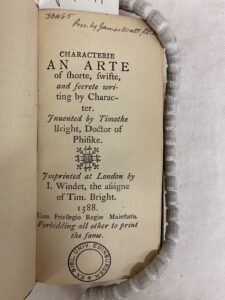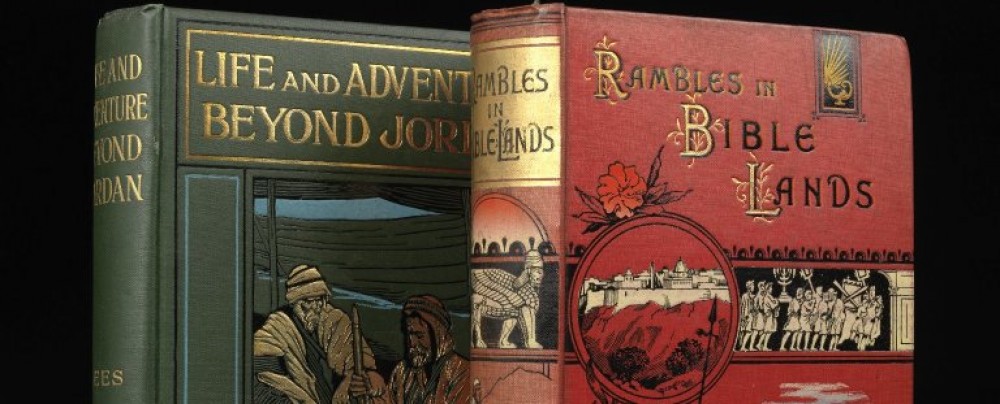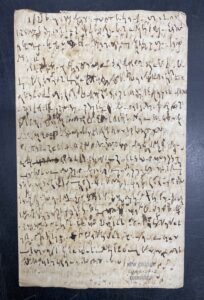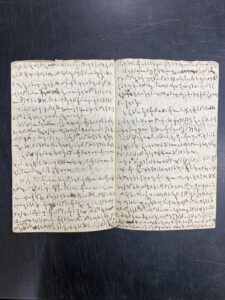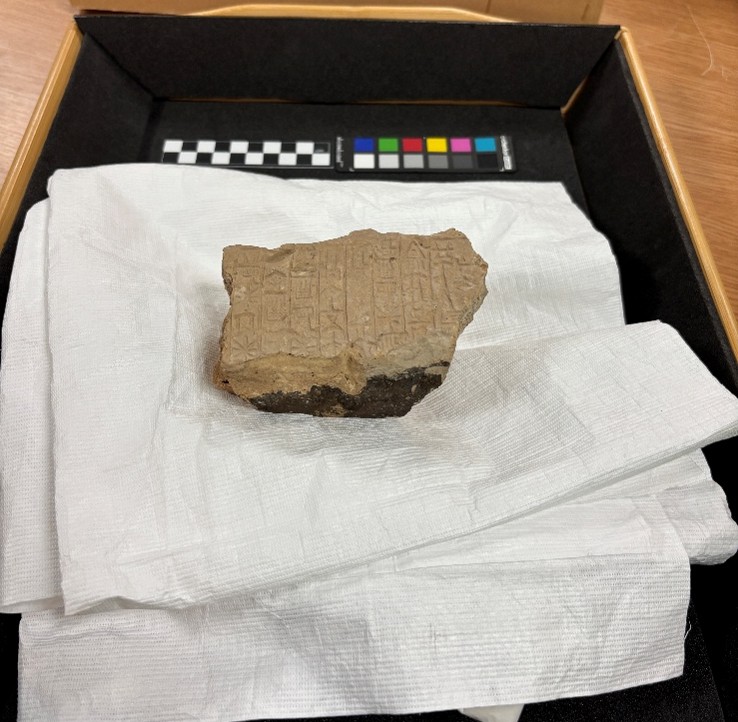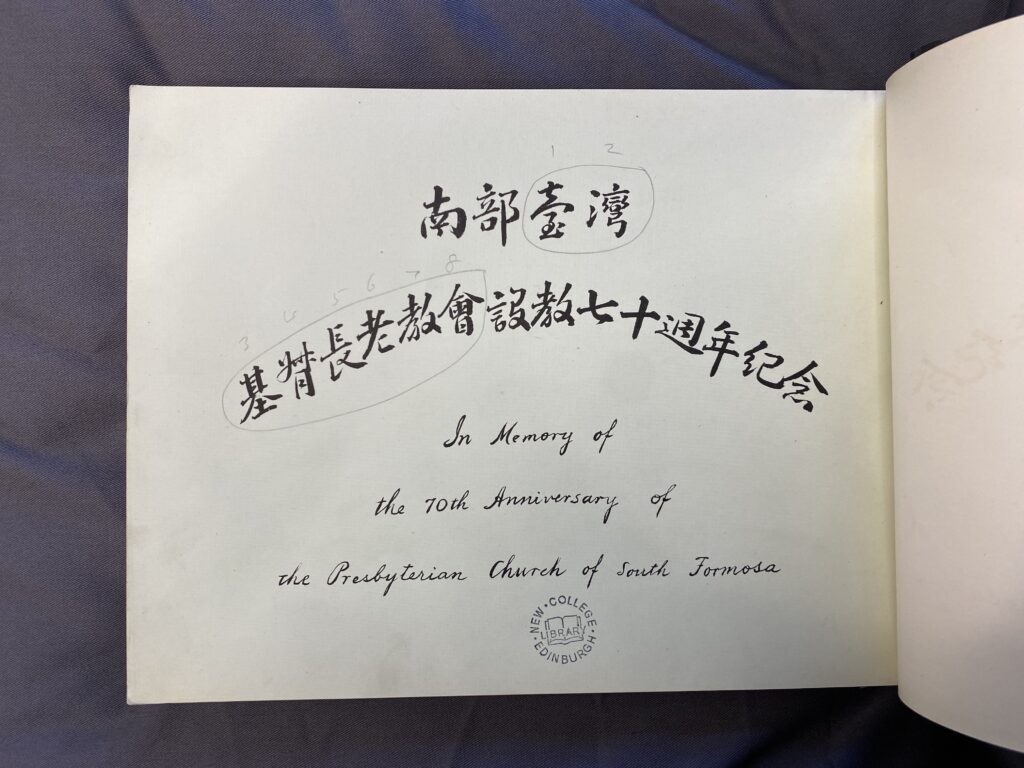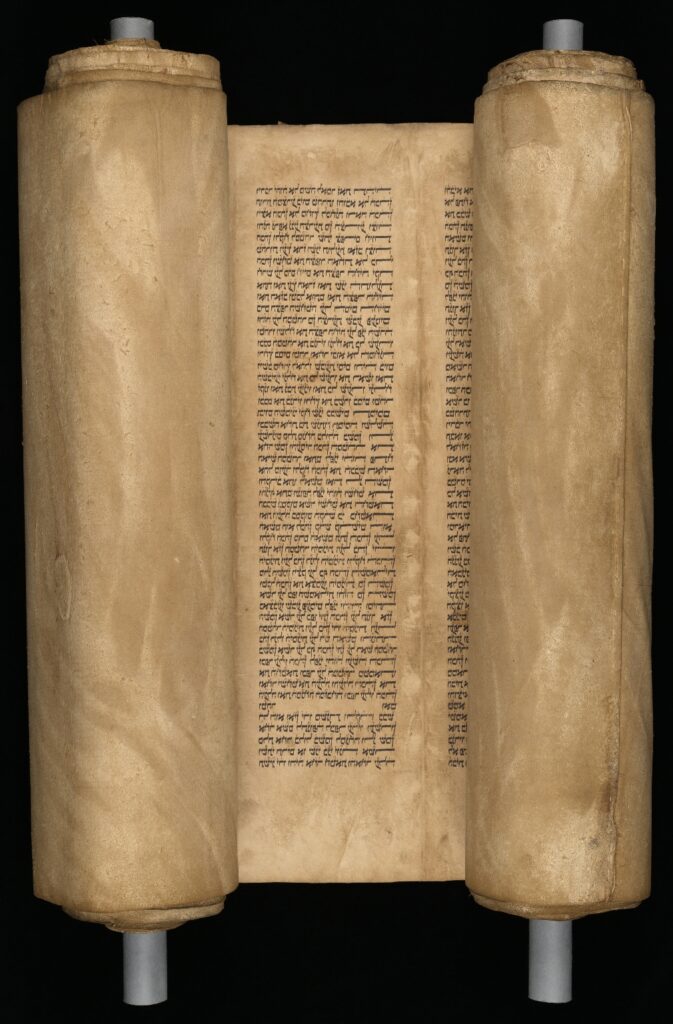
New College Library Hall during the General Collection moves to DHT
Post by Jamie Sutherland, New College Library Project Assistant
New College Library moved to its temporary home in David Hume Tower in January 2020. This new space will allow continued access to books and journals from the General Collections while an Estates Project is carried out in our stunning Mound Place home. The General Collection moves have covered over 3.25km of books and, whilst the project team has been glad to see these securely in their new location, this has only been the first stage of the move project. New College Special Collections, one of the UK’s largest collections of theological rare books and archives, have also been prepared for safe relocation to other secure University sites and specialist off-site storage.

New College Library Hall during the General Collection moves to DHT

Pre-1900 Journals labelled and stabilised with cotton-tape ties ready for the move.
With the General Collections safely relocated to David Hume Tower, the past few months have focused on the even more daunting task of preparing our Special Collections materials. Here are some ongoing tasks which have formed part of this work:
Collections Care: New College Special Collections include a number of rare and wonderful materials which require their own special attention to move and store safely. These include rolled scrolls, glass plate negatives, photograph albums, books bound in animal hide, palm-leaf manuscripts, and even the academic gowns belonging to Thomas Chalmers, the first Principal of New College. Most of our work has focused on securely boxing or wrapping these items ready for the move. This has also given us the opportunity to consider their long-term storage requirements and what we might do to enhance their preservation once they return to their permanent home. As a team, we have been working on creating bespoke boxes and housing arrangements for some of the more unusual items as well as working on research projects to identify the best practices of collections care for particular types of material. Many items also had detached spines and covers which we were determined not to lose during transit. Our older journals were systematically checked for any damage or special care needs and either wrapped in acid-free tissue or ‘stabilised’ with cotton-tape ties to keep them together.
Archive ‘Mapping’: The collections include an extensive archive containing the papers of significant individuals or groups connected to New College, the University and the Church of Scotland. The project has focused on ensuring that these archive materials are fully listed, secured ready for the move, and suitably stored within the University. This began with the major task of identifying and measuring all the archive material. The final figure comes out at over 900 archive boxes and over 1,500 volumes! These figures help us to work out the optimal way of arranging shelving and storage arrangements, balancing collection storage needs with the ever-present concern of saving space. Having this information will also prove useful in the future in allowing us to identify potential rehousing projects such as the work of the Crowdsourcing Conservation Events.
Flat Folio Sequence: Many of the volumes in New College Special Collections are oversized. At the moment, these volumes are stored standing upright on the shelves alongside their smaller companions. Since these books have very heavy text-blocks, storing them upright exerts a lot of pressure on their spines which can cause damage to the book itself as well as risking damage to smaller items on the shelves which could become stuck or crushed between them. The project move has provided us with the opportunity to extract these larger items from the collection and bring them together into a dedicated ‘Flat Folio’ sequence (defined as any item over 42cm in height). These books can now be stored horizontally, which is a far better arrangement from the consideration of collections care. This project has required identifying, listing, and conducting basic collections care work on these items. Our inventory team have also been working on extracting these items ready for the move and updating their records with new temporary call numbers. The new flat folio sequence will contain over 900 volumes to be stored on much improved flat shelving.
Improving Shelf Space: Moving such a large collection poses the difficulty of finding enough shelf space to store it during the project. Whilst approximately two-thirds of the collection is moving to specialist off-site storage, we also have to retain a large portion on campus to facilitate collections care, cataloguing, and readers’ access to high-use material. As part of the project, we have been identifying ways to compact and re-pitch existing shelving in secure University stores to create additional space for the New College collections. Since January, we have successfully created an additional 39 linear metres of shelving which will provide space to store the New College archives and incunabula collection. Once the project has been completed, this space will be available to accommodate future projects or allow room for the acquisition of new Special Collections material.

Bound copies of ‘The Witness’ newspaper, forming part of the new Flat-Folio Sequence in NCL Special Collections
Over the next few weeks, we’ll be dedicating our blog posts to some of the particularly interesting items we have been working on in the New College Library collections. Keep an eye on this blog where we will be posting new case studies and insights into some of these remarkable items and the work which has been ongoing to keep them safe and accessible to future generations.
